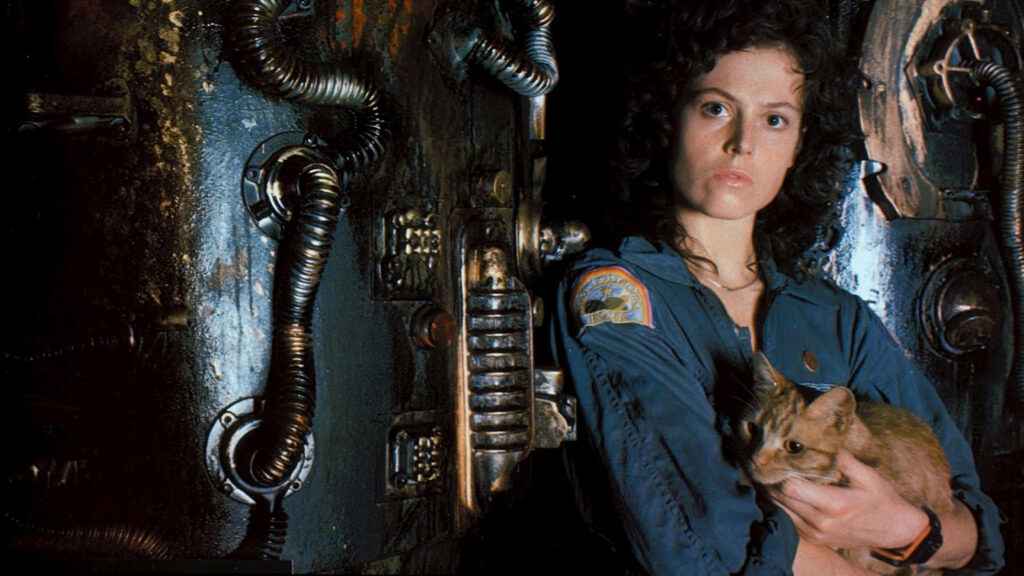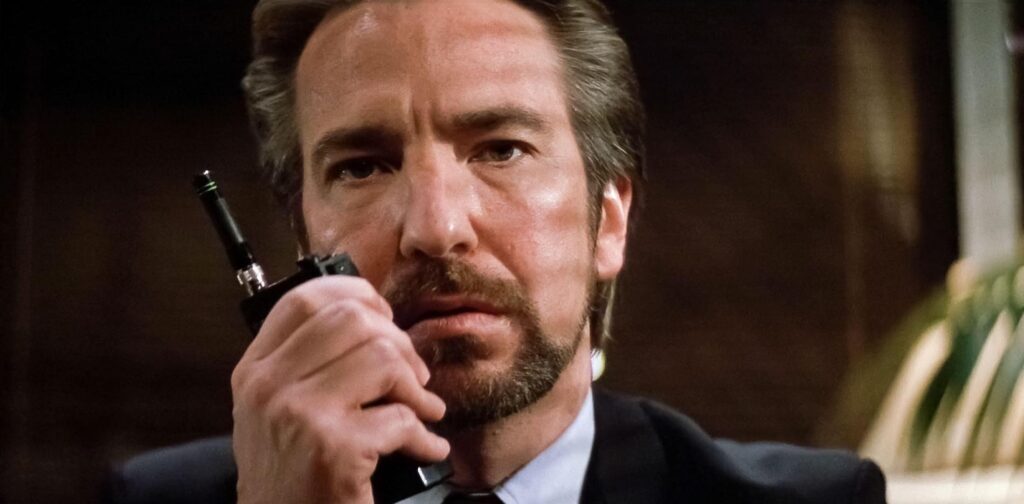200 Heroic and Villainous Character Traits

Do you want to know what makes characters in a story really pop? Well, it's all about their traits. Here we present 100 heroic character traits and 100 villainous (or antagonistic) character traits that you can use to build your characters. Each type of character can have multiple versions of these character traits or you can pinpoint a handful to develop your characters even more, exploring further themes and arcs related to each you choose.
200 Heroic and Villainous Character Traits
100 Heroic Character Traits
- Courage: The ability to confront fear and adversity with bravery.
- Honesty: The commitment to truth and straightforwardness in actions and words.
- Integrity: The unwavering adherence to a strong moral code and principles.
- Loyalty: Devotion and faithfulness to a person, cause, or group.
- Perseverance: The determination to endure and overcome challenges.
- Selflessness: A focus on the welfare of others over personal gain.
- Empathy: The capacity to understand and share the feelings of others.
- Tenderhearted: Genuine concern and kindness towards others' troubles.
- Determination: The resolve to achieve one's goals, despite obstacles.
- Kindness: A warmhearted and benevolent disposition towards others.
- Humility: Modesty and a lack of arrogance or pride.
- Empowerment: Giving others the tools and confidence to succeed.
- Altruism: Selfless concern for the well-being of others.
- Sacrifice: Willingness to give up something valuable for the benefit of others.
- Resilience: The ability to bounce back from adversity and challenges.
- Leadership: The capacity to guide and inspire others towards a common goal.
- Wisdom: Knowledge, experience, and good judgment in decision-making.
- Patience: The ability to remain calm and understanding in difficult situations.
- Trustworthiness: Dependable and deserving of trust and confidence.
- Responsibility: A strong sense of duty and accountability.
- Justice: A commitment to fairness and moral rightness.
- Fairness: Treating others impartially and without bias.
- Bravery: Facing danger or difficulty with courage.
- Generosity: A willingness to give and share with others.
- Self-discipline: The ability to control one's own behavior and impulses.
- Optimism: A positive and hopeful outlook on life and the future.
- Hopefulness: A belief in the possibility of positive outcomes.
- Faith: Trust and confidence in something greater than oneself.
- Magnanimity: Generosity and forgiveness toward those who have wronged you.
- Honor: A commitment to moral and ethical principles.
- Chivalry: A code of conduct emphasizing honor and courtesy.
- Courtesy: Politeness and respectful behavior towards others.
- Decisiveness: The ability to make choices quickly and effectively.
- Fidelity: Faithfulness and loyalty to a person or cause.
- Compassion: Concern and sympathy for the suffering of others.
- Tenacity: Persistent determination and unwavering resolve.
- Nobility: High moral and ethical qualities.
- Dependability: Reliable and trustworthy in all circumstances.
- Sincerity: Honesty and authenticity in words and actions.
- Tolerance: Acceptance of diversity and differing opinions.
- Purity: A commitment to moral and ethical purity.
- Sympathy: Understanding and sharing the feelings of others.
- Open-mindedness: Willingness to consider new ideas and perspectives.
- Prudence: Careful and wise judgment in decision-making.
- Good judgment: The ability to make sound decisions.
- Accountable: Taking responsibility for a group they oversee..
- Self-Sacrifice: Willingness to give up personal interests for the greater good.
- Teamwork: Collaboration and cooperation with others.
- Respect: Showing consideration and esteem for others.
- Gratitude: Thankfulness for what one has received.
- Dedication: Wholehearted commitment to a task or cause.
- Adaptability: The ability to adjust to new conditions and situations.
- Resourcefulness: The capacity to find creative solutions to problems.
- Forgiveness: Letting go of resentment and pardoning others.
- Trust: Confidence in the reliability and integrity of others.
- Honor: Upholding principles and moral values.
- Heroism: Demonstrating exceptional courage and selflessness.
- Dignity: A sense of self-worth and respect for others.
- Endurance: The ability to withstand hardship and challenges.
- Grit: Perseverance and determination in the face of adversity.
- Modesty: Humble and unassuming behavior.
- Conscientiousness: Attention to detail and diligence in work.
- Service: A commitment to helping and serving others.
- Fair-mindedness: Treating all people impartially and fairly.
- Camaraderie: A strong bond and friendship with others.
- Enthusiasm: Eagerness and passion for what one does.
- Optimism: A positive outlook on life and the future.
- Versatility: The ability to adapt and excel in different situations.
- Steadfastness: Unwavering commitment and dedication.
- Self-control: Discipline in managing one's behavior and emotions.
- Calmness: Remaining composed and serene in challenging situations.
- Supportive: Providing encouragement and assistance to others.
- Tactfulness: Skill in handling sensitive situations with diplomacy.
- Resolve: Determination to see a task or goal through to the end.
- Sensitivity: Awareness and responsiveness to the needs of others.
- Courageousness: Fearlessness in the face of danger.
- Dependability: Trustworthy and consistent in one's commitments.
- Insightful: A deep understanding of people and situations.
- Perceptiveness: The ability to notice and understand subtle details.
- Ingenuity: Creativity and resourcefulness in problem-solving.
- Grace: Elegance and poise in behavior and actions.
- Bountiful: Enabling and motivating others to succeed.
- Foresight: The ability to anticipate and plan for the future.
- Accountability: Taking responsibility for one's actions and their consequences.
- Dignity: Demonstrating self-respect and respect for others.
- Idealism: Pursuing high moral and ethical principles.
- Persuasiveness: The ability to influence and convince others.
- Charity: Generosity and kindness towards those in need.
- Tolerance: Acceptance of diversity and different perspectives.
- Respectfulness: Treating others with respect and consideration.
- Harmony: Promoting peace and unity in relationships and communities.
- Modesty: Humble and unpretentious behavior.
- Solidarity: Unity and support with others, especially in difficult times.
- Honesty: Truthfulness and integrity in all dealings.
- Grace: Elegance and poise in actions and behavior.
- Openhearted: An open and accepting attitude towards others.
- Caring: Genuine concern for the well-being of others.
- Tenacity: Persistent determination and unwavering resolve.
- Consideration: Thoughtfulness and regard for the feelings and needs of others.
- Self-reliance: Independence and the ability to rely on oneself.

'Alien'
100 Villainous Character Traits
- Cruelty: Enjoying causing pain or suffering to others.
- Deception: The act of misleading or lying to achieve personal goals.
- Manipulation: Cunningly influencing others for selfish reasons.
- Greed: Excessive desire for wealth and possessions.
- Selfishness: Prioritizing one's own interests over others.
- Ruthlessness: Showing no mercy or compassion in achieving objectives.
- Malice: The desire to harm others or cause suffering.
- Arrogance: Excessive pride and self-importance.
- Ambition at any cost: Pursuing one's goals without regard for ethics or consequences.
- Vindictiveness: Seeking revenge against those who have wronged them.
- Dishonesty: A willingness to lie and deceive to achieve personal gain.
- Sadism: Deriving pleasure from inflicting pain on others.
- Narcissism: Excessive self-centeredness and vanity.
- Betrayal: Disloyalty or treachery towards others.
- Treachery: Acts of betrayal or disloyalty.
- Envy: Resenting the success or possessions of others.
- Jealousy: Feeling resentment or envy towards others' achievements or possessions.
- Cunning: The use of sly and clever tactics to achieve personal goals.
- Inhumanity: The lack of compassion or empathy towards others.
- Power-hungry: Seeking power and control at any cost.
- Malevolence: A deep desire to cause harm or evil.
- Revengeful: Seeking to retaliate against those who have wronged them.
- Coldhearted: Lacking warmth and empathy in one's actions.
- Misanthropy: Disliking or distrusting humanity as a whole.
- Psychopathy: A personality disorder characterized by a lack of empathy and remorse.
- Sociopathy: A personality disorder marked by manipulative and antisocial behavior.
- Manipulative charm: Using charisma and charm to manipulate others.
- Intolerance: Refusing to accept different beliefs or opinions.
- Prideful: Excessive pride and arrogance leading to one's downfall.
- Ungratefulness: Failing to appreciate what one is privileged with.
- Apathy: Lack of interest, concern, or emotion.
- Disloyalty: Betraying those who trust and depend on you.
- Opportunism: Taking advantage of situations for personal gain.
- Exploitation: Using others for personal advantage.
- Callousness: Insensitivity to the suffering of others.
- Egotism: Excessive self-focus and self-importance.
- Pretentious: An inflated sense of one's own importance.
- Wrath: Intense and vengeful anger.
- Injustice: Acting unfairly and without moral principles.
- Hubris: Excessive pride that leads to one's downfall.
- Contempt: Scorn and disregard for others.
- Impulsiveness: Acting without thought or consideration.
- Conceit: Excessive pride in one's own abilities or appearance.
- Cowardice: Lack of courage in facing difficult or dangerous situations.
- Indifference: Lack of concern or interest in the welfare of others.
- Unscrupulousness: Acting without moral or ethical principles.
- Deviousness: Using deceit and cunning to achieve personal goals.
- Paranoia: Irrational distrust and suspicion of others.
- Sadistic pleasure: Finding joy in causing pain or suffering to others.
- Manipulative intelligence: Using intelligence to manipulate and deceive.
- Duplicity: Acting in a two-faced or deceitful manner.
- Malignancy: A tendency to cause harm or evil.
- Self-interest: Prioritizing personal gain over the well-being of others.
- Delusion: Holding false or irrational beliefs.
- Dishonor: A lack of integrity or moral principles.
- Insubordination: Refusing to obey authority or rules.
- Mischief: Engaging in harmful or disruptive behavior.
- Hypocrisy: Pretending to have virtues or beliefs one does not possess.
- Self-preservation at all costs: Putting personal survival above all else.
- Chaos: Creating disorder and confusion.
- Instability: Unpredictable and erratic behavior.
- Irresponsibility: Failing to fulfill one's obligations.
- Self-Sabotage: Deliberately undermining oneself to hurt others close to them.
- Inefficiency: A lack of effectiveness in achieving goals.
- Pessimism: A negative and gloomy outlook on life.
- Disregard for others: Ignoring the needs and feelings of others.
- Temptation: Yielding to desires that lead to wrongdoing.
- Destruction: Causing harm or damage to people or property.
- Infection: Spreading negativity and discord.
- Dominance: Seeking to control or overpower others.
- Viciousness: Cruel and aggressive behavior.
- Mendacity: The inclination to habitually lie and deceive without remorse.
- Neglect: Failing to provide care or attention.
- Prejudice: Holding biased and unfair opinions.
- Manipulative charisma: Using charm to manipulate and deceive.
- Controlling: Seeking to dominate and dictate the actions of others.
- Distrust: Lacking in trust of others around them.
- Self-delusion: Believing in one's own lies and justifications.
- Impatience: An inability to tolerate delay or frustration.
- Ingratitude: Failing to show appreciation for others' kindness.
- Insincerity: Not being truthful or genuine in interactions.
- Guile: Cunning and deceitful tactics.
- Gluttony: Excessive indulgence, especially in pleasure or consumption.
- Vanity: Excessive pride in one's appearance or abilities.
- Fanaticism: Unwavering and extreme devotion to a cause or belief.
- Maleficence: The intention to cause harm or evil.
- Condescension: A patronizing and superior attitude towards others.
- Self-righteousness: An unjustified belief in one's moral superiority.
- Sabotage: Undermining the efforts of others to achieve personal gain.
- Subterfuge: The use of deceit and trickery to achieve personal goals.
- Plottiness: Engaging in secretive and harmful schemes.
- Ruthless ambition: Pursuing personal goals without regard for ethical boundaries.
- Venom: Spreading harmful and malicious attitudes or behavior.
- Inflexibility: An unwillingness to change or adapt to different circumstances.
- Mistrust: A lack of trust in the intentions of others.
- Hatred: Intense and extreme dislike or hostility.
- Dominance: A desire to control and subdue others.
- Exploitative: Taking advantage of others for personal gain.
- Malignant desire: A deep-seated wish to cause harm or suffering to others.
- Machiavellianism: Using deceit, manipulation, and cunning to achieve personal goals.

Hans Gruber (Alan Rickman) in 'Die Hard'
Personality Traits and Character Traits: Is There a Difference?
There are two different types of traits to consider when you’re developing your characters.
- Personality Traits
- Character Traits
Both of them are key to crafting characters that jump off the page and the screen.
Personality Traits
Personality traits are the ones that paint a picture of who the character is on the outside.
- Quirks
- Charm
- Bossiness
- Laziness
- Attitude
These types of traits are all about how characters act and appear. They're like the makeup and costume of your character.
Character Traits
Character traits, on the other hand, are the real deal. They represent what the characters are really about — what makes them tick. They're all about the moral code and beliefs that define how a character treats themselves and others. This is where you get to the nitty-gritty of who your character truly is at their core.
Character traits are what make your protagonists, antagonists, and villains unforgettable. And, yes, there's a distinction between antagonists and full-blown villains.

'The Fugitive'
The Difference Between Heroes, Antagonists, and Villains
It’s pretty easy to distinguish between a hero or protagonist and an antagonist or villain. The character traits below can guide you through that dynamic.
But people often have a difficult time differentiating the difference between antagonists and villains. Let’s dive into that before you start using the below two hundred character traits to assign to your antagonists or villains.
Villains
Villains are best defined as evil characters in the story who are intent on harming others. While the definition of “evil” is a gray area in literary and cinematic stories, there is inescapable proof of them wanting to unleash harm upon others for their own benefit or sick pleasure.
Darth Vader in the original Star Wars is the personification of evil. He’s the ultimate villain. While his character is later redeemed in Return of the Jedi, we can point to that film’s Emperor Palpatine (Vader’s master) as the epitome of the definition of villain.

'Rouge One'
Antagonists
Antagonists are best defined as characters in a story who work in opposition to the protagonist, but that doesn’t always mean they’re evil or bad.
Case in point, Sam Gerard (Tommy Lee Jones) in the classic action thriller The Fugitive is the antagonist of the film. Richard Kimble (Harrison Ford) is an innocent man running from Gerard, a U.S. Marshal tasked with hunting the fugitive down after a death-defying escape from a prison bus post-accident.
Now, make no mistake, we’re rooting for Kimble to evade escape and prove his innocence. Kimble is the clear protagonist and hero of the story. However, Gerard isn’t a villain. He’s an antagonist. He’s a man doing his job. He literally tells Kimble that he doesn’t care if Kimble is innocent or not. His job is to catch a fugitive, and Kimble is that fugitive at large.
Gerard isn’t evil. He’s not intent on harming others for his own benefit or pleasure. He’s just doing his job. But he is an antagonist because he’s working in opposition to the protagonist.
Read More: 15 Types of Villains Screenwriters Need to Know
Here’s a Hack to Better Character Development Using Character Traits
The two lists obviously attach positive character traits to heroes and negative character traits to villains. If you want to go the extra mile in character development (which you should), you can use this list to create greater character depth by assigning negatives to heroes and positives to villains.
The best characters live closer and closer to that fine line between heroism and villainy. Now, it depends on the story you’re telling. Conventional genre movies usually see audiences preferring an easy distinction between the hero and villain (look no further than Star Wars with Luke Skywalker (Mark Hamill) and Darth Vader).
But in movies and television these days, we see more characters in the gray area between heroes and villains. Antiheroes and anti-villains are all the rage. But you don’t always need to go that far. Assigning simple differential traits to a hero or villain can make them more human and relatable.
- Heroes can be selfish, arrogant, and coldhearted (Han Solo (Harrison Ford) in Star Wars)
- Villains can be loyal, calm, and tactful (Hans Gruber (Alan Rickman) in Die Hard)
The best heroes and villains offer plenty of gray areas for audiences to ponder.
CHECK OUT OUR PREPARATION NOTES SO YOU START YOUR STORY OFF ON THE RIGHT TRACK!
Ken Miyamoto has worked in the film industry for nearly two decades, most notably as a studio liaison for Sony Studios and then as a script reader and story analyst for Sony Pictures.
He has many studio meetings under his belt as a produced screenwriter, meeting with the likes of Sony, Dreamworks, Universal, Disney, Warner Brothers, as well as many production and management companies. He has had a previous development deal with Lionsgate, as well as multiple writing assignments, including the produced miniseries Blackout, starring Anne Heche, Sean Patrick Flanery, Billy Zane, James Brolin, Haylie Duff, Brian Bloom, Eric La Salle, and Bruce Boxleitner, the feature thriller Hunter’s Creed, and many Lifetime thrillers. Follow Ken on Twitter @KenMovies and Instagram @KenMovies76
Tags
Get Our Screenwriting Newsletter!
Get weekly writing inspiration delivered to your inbox - including industry news, popular articles, and more!





























